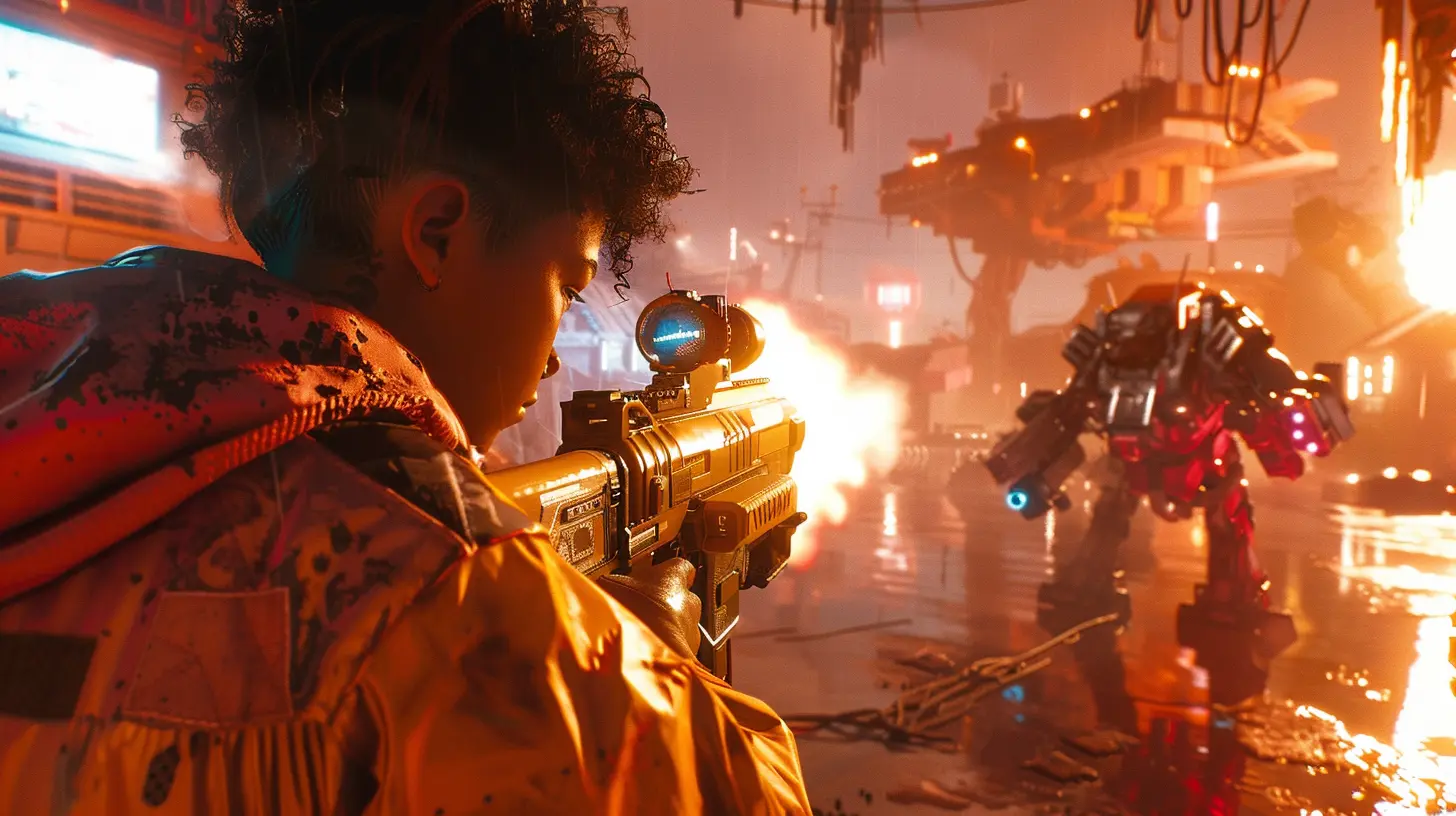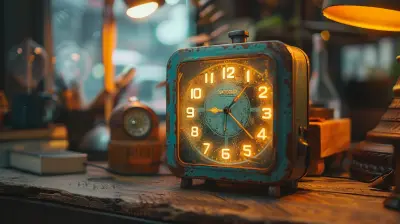Why Some Developers Leak Their Own Games
26 July 2025
Game leaks are like the wildfires of the gaming industry—sudden, uncontrollable, and capable of stirring up a whole lot of chaos. But here’s the kicker: not all leaks come from overzealous fans or disgruntled employees. Sometimes, developers themselves are the ones pulling the trigger. Shocking, right? Why would someone willingly let their own game slip into the hands of the public before its official release?
In this article, we’ll deep dive into this curious phenomenon. From clever marketing strategies to mitigating risks, there’s a surprising amount of logic (and chaos) behind why some developers leak their own games.
Could Leaks Be a Part of the Strategy?
Let’s face it—marketing is a beast, especially in the gaming world. With thousands of titles vying for players' attention, standing out from the crowd can feel like trying to scream over a rock concert. Game developers are smart, though. Sometimes, leaking their own games is like tossing a lit match onto a trail of gasoline—it creates buzz faster than any press release could.Building Hype Before Announcements
People love secrets—they’re like candy for the brain. When a game leak happens, it often spreads like wildfire through social media, gaming forums, and YouTube channels. Developers might drop a "leak" about a new feature or gameplay mechanic to get people talking. And let’s be honest, we gamers can’t resist dissecting every pixel of a blurry screenshot like it's the last clue in a murder mystery.Take, for example, the infamous case of Grand Theft Auto VI. While Rockstar Games didn’t officially confirm whether they were behind the leaks, the buzz generated by the "leaked" footage practically took over the internet. Coincidence? Maybe. Clever marketing move? You decide.
Guerrilla Marketing in Action
In a world where marketing budgets can reach the millions, some developers decide to play it a little sneaky. They use leaks as a form of guerrilla marketing—a low-cost but high-impact strategy to get people hyped. Think of it like whispering a juicy rumor at a party; it doesn’t take much effort, but it gets everyone talking.This approach works particularly well for indie developers who don’t have the budget to slap their game trailer across every YouTube video or billboard. A well-timed "leak" can generate enough curiosity to put their game on the radar without breaking the bank.
Testing the Waters: The Risk-Reward Game
Leaking your own game is kind of like dipping your toes in the water before cannonballing into the pool. Developers sometimes use leaks to gauge public interest or gather early feedback.Measuring the Fan Reaction
Think about this: what if a developer isn’t sure whether a new feature will resonate with fans? Let’s say they’re considering adding a battle royale mode to a traditionally single-player game. Instead of committing, they might "leak" the concept to see how the community reacts.If the feedback is good, they can capitalize on it. If it’s terrible, they can pivot without admitting they were ever serious about it. It’s like asking for opinions on a dish before actually serving it at the dinner table.
Stealing Thunder from Competitors
Ever notice how game leaks seem to happen right before a major competitor’s announcement? Coincidence? Probably not. Developers might leak their project to steal the spotlight from someone else, ensuring gamers are focused on their game instead of the new kid on the block.It’s a risky move, no doubt, but in an industry as cutthroat as gaming, sometimes you’ve got to play dirty to come out on top.
Damage Control: Getting Ahead of the Chaos
Sometimes, leaks aren’t about strategy—they’re about survival. When a game is at risk of being exposed by someone else, developers may choose to leak it themselves to control the narrative.Getting Ahead of Unintentional Leaks
Imagine working on a game for three years, only to have a disgruntled employee spill the beans before you’re ready. It sounds like a nightmare, right? To avoid being blindsided, developers might beat the leaker to the punch. By leaking the game themselves, they can frame the conversation and prevent misinformation from spreading.It’s a bit like owning up to a mistake before someone else calls you out on it. Sure, the leak wasn’t part of the plan, but at least it’s on their terms.
Turning Bad Press into Good Press
Not all leaks are sunshine and rainbows. Sometimes, they reveal unfinished gameplay or bugs that make the game look bad. However, savvy developers know how to spin this to their advantage. They might release an official statement to "address the leak" while dropping hints about how great the final product will be.This strategy can actually boost a game’s credibility. Players appreciate honesty, and acknowledging the leak can make the developers seem more transparent and trustworthy.
The Double-Edged Sword of Self-Leaking
As clever as leaking your own game might seem, it’s not without its risks. Like playing with fire, it can either cook your dinner or burn your house down.The Risk of Over-Hype
One major downside of leaks is the potential for over-hype. If fans get too excited based on leaked content, the final product might fall short of their sky-high expectations. Remember how Cyberpunk 2077 promised the moon and ended up delivering... well, something less celestial? Leaks can build a mountain of anticipation that no game, no matter how good, can ever climb.Legal and Financial Implications
Leaks can also create legal headaches. Even if you’re the one doing the leaking, you risk violating contracts with publishers, platform providers, or other partners. And let’s not even get started on the mess it can make with intellectual property rights.Financially, leaks can hurt sales if they reveal too much. After all, why pre-order a game when you’ve already seen half the gameplay on YouTube? Developers need to strike a delicate balance between stirring up buzz and preserving the mystery.
Should Developers Leak Their Own Games?
So, why do some developers leak their games? At the end of the day, it’s all about navigating a tricky landscape. Whether it’s done to build hype, gather feedback, or control the narrative, self-leaking is a tool that comes with both rewards and risks.Should developers do it? That’s up for debate. When done right, it can turn a game into a must-play phenomenon. Done wrong, it can backfire spectacularly. Either way, one thing’s for sure: leaks, intentional or not, are here to stay. And as gamers, we’re always going to be hungry for every little morsel of information we can get.
all images in this post were generated using AI tools
Category:
Gaming LeaksAuthor:

Whitman Adams
Discussion
rate this article
2 comments
Xavier McEvoy
Great read! It’s fascinating how developers use leaks to build hype and engage fans. It’s like teasing a friend about a surprise party—exciting and a bit cheeky!
October 28, 2025 at 5:01 AM

Whitman Adams
Thank you! I'm glad you enjoyed it. The strategy of intentional leaks really adds a fun layer to game development and fan engagement!
Mara McHugh
Maybe they're just practicing for the big reveal—like a magician showing you half the trick before pulling a rabbit out of a hat!
July 30, 2025 at 4:59 AM

Whitman Adams
That's an interesting perspective! Strategic leaks can definitely build anticipation and create buzz, much like a magician's tease.


